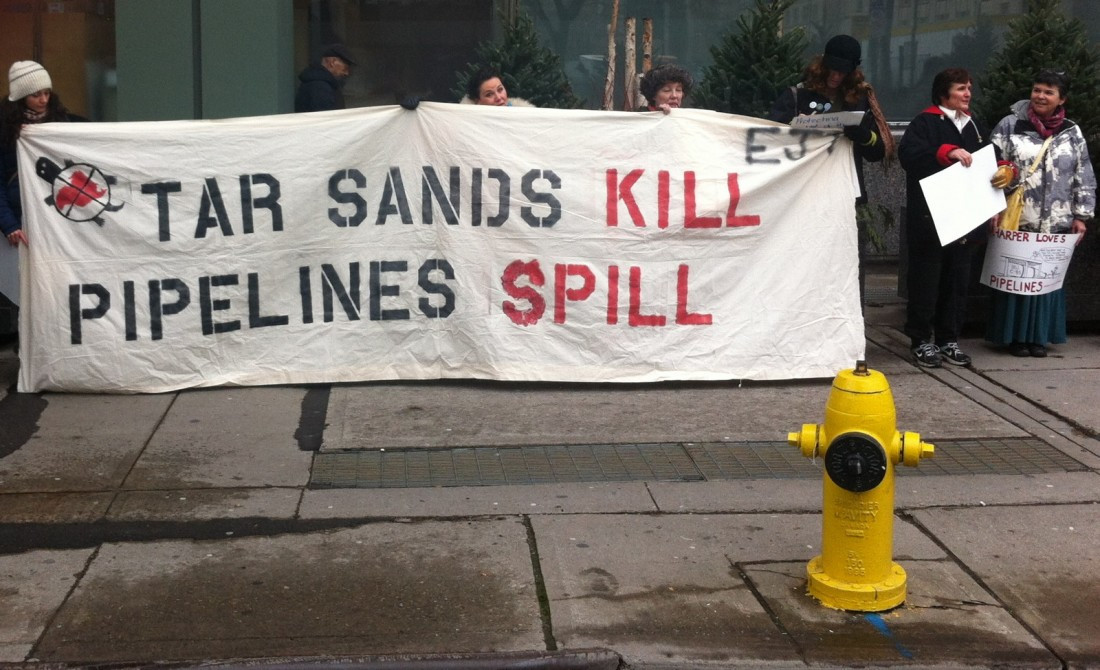Does Manitoba have a dirty hydro problem?
Some thoughts on energy inequity in the province’s north
By now, everyone has seen the images coming out of anti-fracking protests led by the Elsipogtog First Nation near Rexton, New Brunswick. The protester’s blockade is just one in a long line of movements by indigenous communities in the past several decades to push back against resource exploitation on their lands. It is also a symbol of a fight for what kind of Canada we and future generations will live in. Viewing the most recent events and the growth of Idle No More from a Manitoba perspective, one might ask: how do these issues affect us on a provincial level and how can we best get involved?
It may be easy to say that the “action” is in large part taking place outside of Manitoba’s borders. Winnipeg’s large urban indigenous population aside, ground zero seems more to be around pipeline construction on unceded land in British Columbia, the oil sands in Alberta or the blockade by the Mi’kmaq in New Brunswick. The ugly truth, however, is that resource exploitation and the struggles of First Nations communities are just as real and prevalent here in Manitoba. And while hydro power may be relatively “clean” in comparison to oil, that does not negate the troubling aspects of its development.
Being a white suburbanite I think very little about the heating of my home and come to see it as a natural privilege. The sad irony is that those nearest to the dams that supply this cheap power see little to no economic benefit. The situation is exacerbated by a mix of substandard housing and cold weather creating astronomical heating bills. This leaves many with no real means of actually paying the bills.
“ The reality is that because of a lack of fair access (in the form of water rentals) to the millions of dollars worth of electricity that pass by the Pimicikamak every day, they are caught between a cynical, bullying Manitoba Hydro and a harsh winter.
Recently this situation has come to a head in Cross Lake where Manitoba Hydro cut off power to some of the homes of the Pimicikamak Cree Nation. Earlier this month the Pimicikamak Executive Council worked with Manitoba Hydro to get the homes reconnected. While some were reconnected, two other homes–one belonging to a 70 year old women and the other to a family with young children–were disconnected. It’s reasonable to ask: had these people lived in Southern Manitoba, would Hydro have cut them off so close to winter?
The reality is that because of a lack of fair access (in the form of water rentals) to the millions of dollars worth of electricity that pass by the Pimicikamak every day, they are caught between a cynical, bullying Manitoba Hydro and a harsh winter. While the Pimicikamak Executive Council have stated they share Hydro’s concern that customers who owe have a responsibility to pay, they also want the company to honour its end of the deal. That means, simply, treating the Pimicikamak with dignity and respect.
Here in Manitoba we have to stand in solidarity with the Mi’kmaq in Elispogtog but we should not lose sight of the struggles going on in our own province. We have a duty and responsibility to stand in solidarity with the Pimicikamak in Cross Lake.
Scott Price is a researcher at the Oral History Centre at a graduate of the University of Winnipeg.







